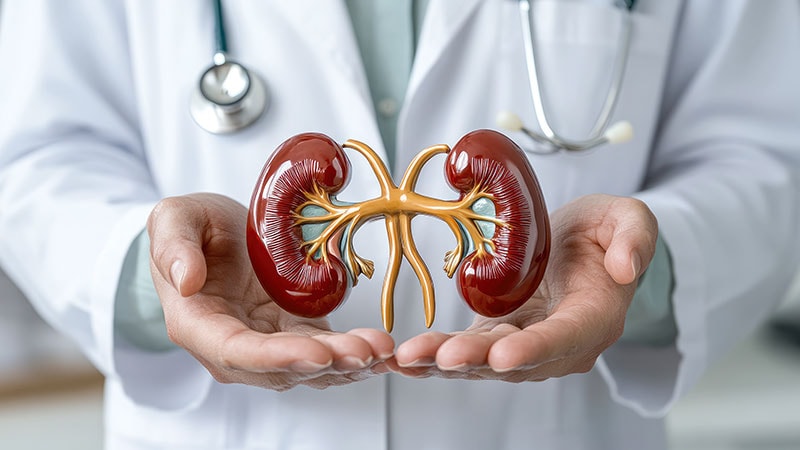TOPLINE:
A notable proportion of patients receiving veno-venous extracorporeal membrane oxygenation (ECMO) for acute respiratory failure developed acute kidney injury (AKI), likely due to the greater severity of the underlying disease. Severe AKI was independently associated with reduced hospital survival, regardless of whether it occurred before or during ECMO.
METHODOLOGY:
- Researchers conducted a retrospective cohort study to evaluate the prevalence, survival, and risk factors for AKI in 500 patients undergoing veno-venous ECMO for acute respiratory failure (median age, 55 years; 30% women).
- Patients were categorised into three groups: those with the onset of AKI before ECMO, those with its onset during ECMO, and those with its onset both before ECMO and a new onset of AKI during ECMO after an initial recovery.
- AKI was defined according to Kidney Disease: Improving Global Outcomes (KDIGO) guidelines.
- Patients were followed up for survival up to 1 year after hospital discharge to assess long-term outcomes.
- Propensity score matching was performed between patients without AKI and those with its onset during ECMO to analyse risk factors.
TAKEAWAY:
- Overall, 64% (n = 320) developed AKI, 182 of whom had the onset of the condition before ECMO and 158 during ECMO.
- The overall survival to hospital discharge was 67% (n = 335), with severe AKI (KDIGO stage 3) associated with reduced hospital survival regardless of its onset before or during ECMO (P = .001).
- Patients with the onset of AKI before veno-venous ECMO had significantly higher levels of inflammatory markers and required higher doses of norepinephrine at the initiation of ECMO than those without AKI, highlighting a greater severity of the underlying disease.
- Similarly, among patients who developed vs did not develop AKI during ECMO, markers of disease severity and sepsis such as high organ failure scores, high levels of C reactive protein, and low mean arterial pressure emerged as risk factors.
IN PRACTICE:
“AKI is a frequent complication in patients supported with VV [veno-venous]-ECMO. AKI onset before VV-ECMO-therapy is linked to the severity of the underlying disease. AKI onset during VV-ECMO is less due to ECMO-related factors but also to the severity of the disease and septic episodes,” the authors wrote.
SOURCE:
This study was led by Franziska Fuchs and Clemens Wiest, University Hospital Regensburg in Regensburg, Germany. It was published online on August 01, 2025, in Kidney360.
LIMITATIONS:
The study’s retrospective design limited its generalisability and the establishment of causal conclusions. Data on patients before hospital admission were limited. The prevalence of AKI may have been affected by using creatinine alone for diagnosis and the lack of baseline data on creatinine and urine output.
DISCLOSURES:
No funding information was provided for this study. Some authors declared being employees, board or committee members, advisors, or consultants of various pharmaceutical companies.
This article was created using several editorial tools, including AI, as part of the process. Human editors reviewed this content before publication.
Source link : https://www.medscape.com/viewarticle/severe-aki-tied-reduced-survival-patients-ecmo-2025a1000kqq?src=rss
Author :
Publish date : 2025-08-07 12:00:00
Copyright for syndicated content belongs to the linked Source.
